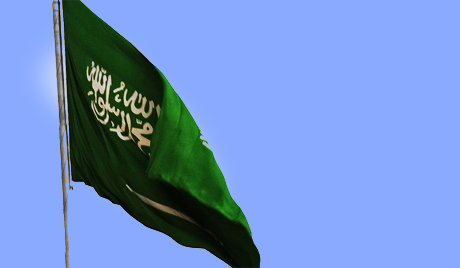Saudi Arabia announced a 2015 budget with a huge deficit Thursday as the world’s largest crude exporter begins to feel the impact of its own decision not to shore up oil prices.
Saudi Arabia announced a 2015 budget with a huge deficit Thursday as the world's largest crude exporter begins to feel the impact of its own decision not to shore up oil prices.
The government announced the $38.6 billion deficit on state-run television, saying it would nonetheless boost projected spending by tapping its vast financial reserves.
The lead producer in the Organization of the Petroleum Exporting Countries, Saudi Arabia has insisted the cartel will not move to strengthen global oil prices despite a drop of nearly 50 percent since June.
OPEC has maintained a production ceiling of 30 million barrels per day, in a move analysts say is aimed at stifling competition from new market players with higher costs, in particular North American shale oil producers.
Saudi officials have vowed not to boost production no matter how low prices go, regardless of the impact on the country's coffers.
The budget announced for next year sees spending at 860 billion riyals ($229.3 billion) and revenues at 715 billion riyals ($190.7 billion).
Projected spending is slightly higher than planned for this year, but revenues are 140 billion riyals lower than estimates for 2014, said the statement read after a cabinet session chaired by Crown Prince Salman bin Abdulaziz.
The 2015 budget shortfall is the first deficit projected by the OPEC kingpin since 2011 and the largest ever for the kingdom.
Finance Minister Ibrahim al-Assaf said the kingdom was in good enough shape to see out the downturn.
"The challenge was bigger than expected. We continued to revise the budget figures as oil prices dived," Assaf told Saudi TV.
"Despite the deficit, we will continue to spend on development projects... We have the buffers to bear the drop."
Assaf said everyone agreed oil would rebound and that it was only a question of when.
In the past decade, Saudi Arabia overspent budget projections by more than 20 percent and if the trend is maintained next year, analysts say the deficit will be much higher.
"I believe we are headed for a difficult year in 2015. I think the actual deficit will be around 200 billion riyals because actual revenues are expected to be lower than estimates," Saudi economist Abdulwahab Abu-Dahesh said.
"Spending in the budget is not in line with the sharp decline in oil prices."
The finance ministry also announced the 2014 preliminary actual budget figures, saying it expects a deficit of 54 billion riyals, the first shortfall since 2009.
